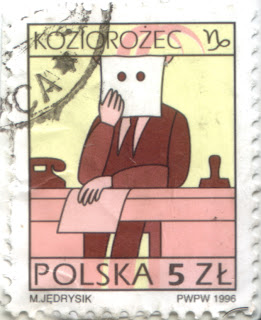eggheads vs egocasting
 ... followed this link from James Howard Kunstler's website (an interesting character - stunning for his prescience as well as his casual command & synthesis of a number of different technical disciplines eg: urban planning, architecture, resource economics, more! His blogging tends to curmudgeonly lambast, but all his books are distinguished by their abundance of dry wit; "The Long Emergency: Surviving the Converging Catastrophes of the 21st Century" & "Geography of Nowhere: the rise & decline of America's man-made landscape" are both recommended).
... followed this link from James Howard Kunstler's website (an interesting character - stunning for his prescience as well as his casual command & synthesis of a number of different technical disciplines eg: urban planning, architecture, resource economics, more! His blogging tends to curmudgeonly lambast, but all his books are distinguished by their abundance of dry wit; "The Long Emergency: Surviving the Converging Catastrophes of the 21st Century" & "Geography of Nowhere: the rise & decline of America's man-made landscape" are both recommended).Anyways. Downloaded the podcast at that Berkeley link. Essential proposition of the debate: the sheer abundance of information on the internet, much of it trivial, is distracting we the citizens from more meaningful & authoritative sources of information. And wasn't this always transparently the promise of the internet: a globe of atomised individuals staring into their screens when they might be engaged at more genuine social activity? Uber-geeks like Ken Wark and Mark Amerika have a lot to answer for... (no, I won't provide a link to either of those buffoons. They belong in a remake of Robert Downey Snr's Pound)
There's something to the argument - much of web content is worthless garbage (even if that criteria is essentially a matter of personal taste). BUT should we necessarily be mourning the decline of commercial mass media institutions, in the forms in which they existed in C20? Its a fascinating debate.
Andrew Keen (author, "The Cult of the Amateur: How Today's Internet is Killing Our Culture and Assaulting Our Economy") is prone to many of the worst flaws he identifies in the bloggers/youtubers/etc that are the subject of his critique. His argument proceeds from a logical fallacy...
BUT: the cat has some clues. When I'm teaching at Uni, I can't help but be struck by the seeming inability of many younger students to discriminate between different sources of information: to determine fact from spin, sort the material fact from opinion/advertorial/propaganda.
So: the podcast makes a stimulating listen, and exemplifies the web's potential for Open University -style info-sharing. It also serves to remind me just how poorly we're served in Australia by the folks that should be our "public intellectuals" - too many of our debates on social & cultural policy are the arena of narrow sectional interests (you can tune into ABC radio anyday to cop these thinktank commentators flapping at the gums about some nonsense or other).
(Where it all resolves): the idea, maybe attributable to Paulo Friere, that the function of education is to provide future citizens not with facts per se, but to equip them with the kind of in-built "bullshit detector" that will enable them to evaluate information, and apply it in meaningful everyday ways.
... Earlier today, I bumped into my pal James Hullick; we talked about the postgrad seminar we both attend. And we were agreed: an idea is not an outcome in itself, its a tool from which to fashion an outcome. Ideas can & should be critiqued - but, ultimately, the point becomes: what sort of use can you make of them? That podcast is replete with lucid & articulate thinking: useful tools, aplenty.
Labels: eggheads, egocasting, James Howard Kunstler, Paulo Friere, public intellectuals, web 2.0


1 Comments:
addendum/note to self:
... cracked open 'Cult of the Amateur' & did the 1st chapter. It is frankly bizarre. This Keen clown seemingly lives in a whirrled where the whole WMD disinfo & subsequent illegal war on Iraq (& everything else; going back to the Hearst Press' advocacy for the Spanish/American War in 1898) never happened....
Web 2.0 is accused of "threatening the quality of civic public discourse", being "advertising & public relations disguised as news" etc etc etc...
Keen imagines this thin tissue of horseshit might constitute an argument in support of Fox, CNN, & their ilk...
Ha!
Post a Comment
<< Home